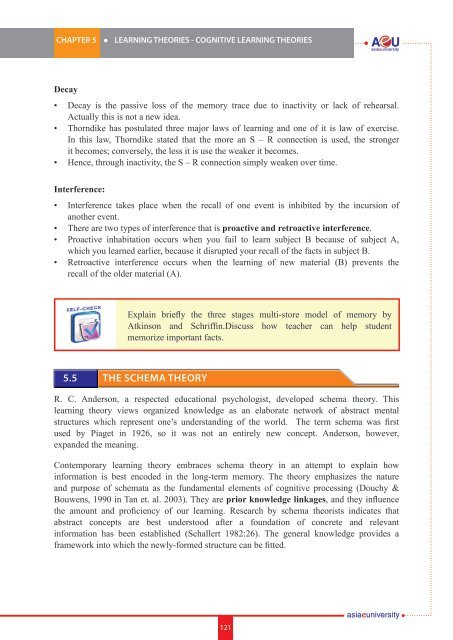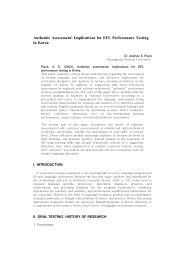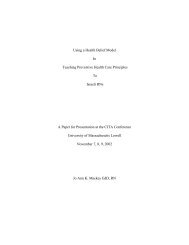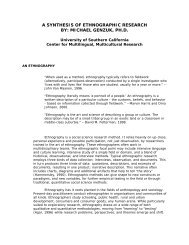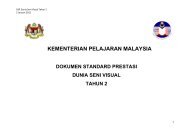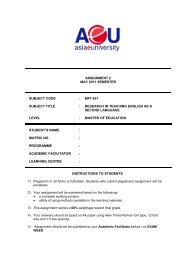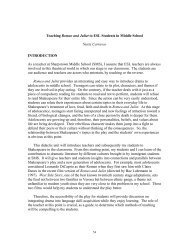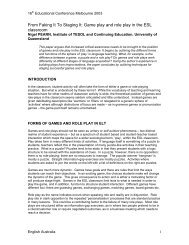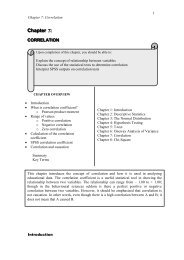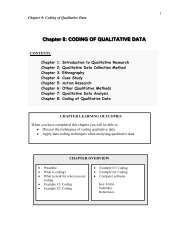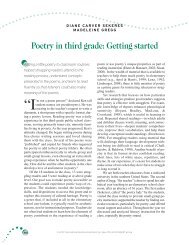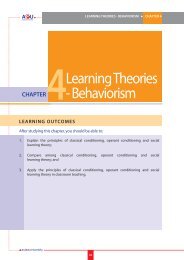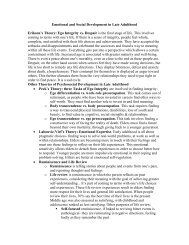Learning Theories - Cognitive Learning Theories CHAPTER
Learning Theories - Cognitive Learning Theories CHAPTER
Learning Theories - Cognitive Learning Theories CHAPTER
You also want an ePaper? Increase the reach of your titles
YUMPU automatically turns print PDFs into web optimized ePapers that Google loves.
<strong>CHAPTER</strong> 5• LEARNING THEORIES - COGNITIVE LEARNING THEORIESDecay• Decay is the passive loss of the memory trace due to inactivity or lack of rehearsal.Actually this is not a new idea.• Thorndike has postulated three major laws of learning and one of it is law of exercise.In this law, Thorndike stated that the more an S – R connection is used, the strongerit becomes; conversely, the less it is use the weaker it becomes.• Hence, through inactivity, the S – R connection simply weaken over time.Interference:• Interference takes place when the recall of one event is inhibited by the incursion ofanother event.• There are two types of interference that is proactive and retroactive interference.• Proactive inhabitation occurs when you fail to learn subject B because of subject A,which you learned earlier, because it disrupted your recall of the facts in subject B.• Retroactive interference occurs when the learning of new material (B) prevents therecall of the older material (A).Explain briefly the three stages multi-store model of memory byAtkinson and Schriffin.Discuss how teacher can help studentmemorize important facts.i.1215.5 The Schema TheoryR. C. Anderson, a respected educational psychologist, developed schema theory. Thislearning theory views organized knowledge as an elaborate network of abstract mentalstructures which represent one’s understanding of the world. The term schema was firstused by Piaget in 1926, so it was not an entirely new concept. Anderson, however,expanded the meaning.Contemporary learning theory embraces schema theory in an attempt to explain howinformation is best encoded in the long-term memory. The theory emphasizes the natureand purpose of schemata as the fundamental elements of cognitive processing (Douchy &Bouwens, 1990 in Tan et. al. 2003). They are prior knowledge linkages, and they influencethe amount and proficiency of our learning. Research by schema theorists indicates thatabstract concepts are best understood after a foundation of concrete and relevantinformation has been established (Schallert 1982:26). The general knowledge provides aframework into which the newly-formed structure can be fitted.121


